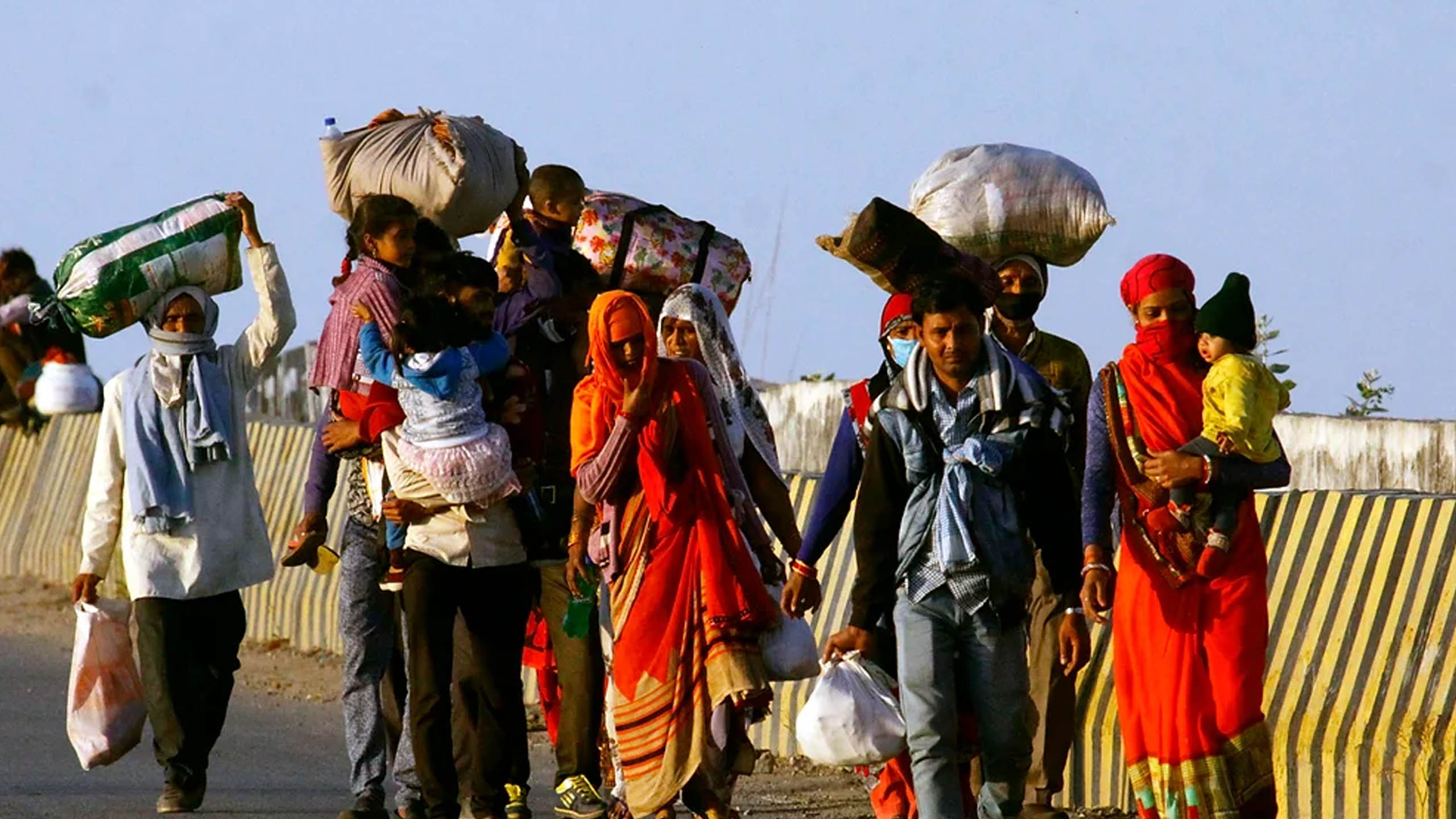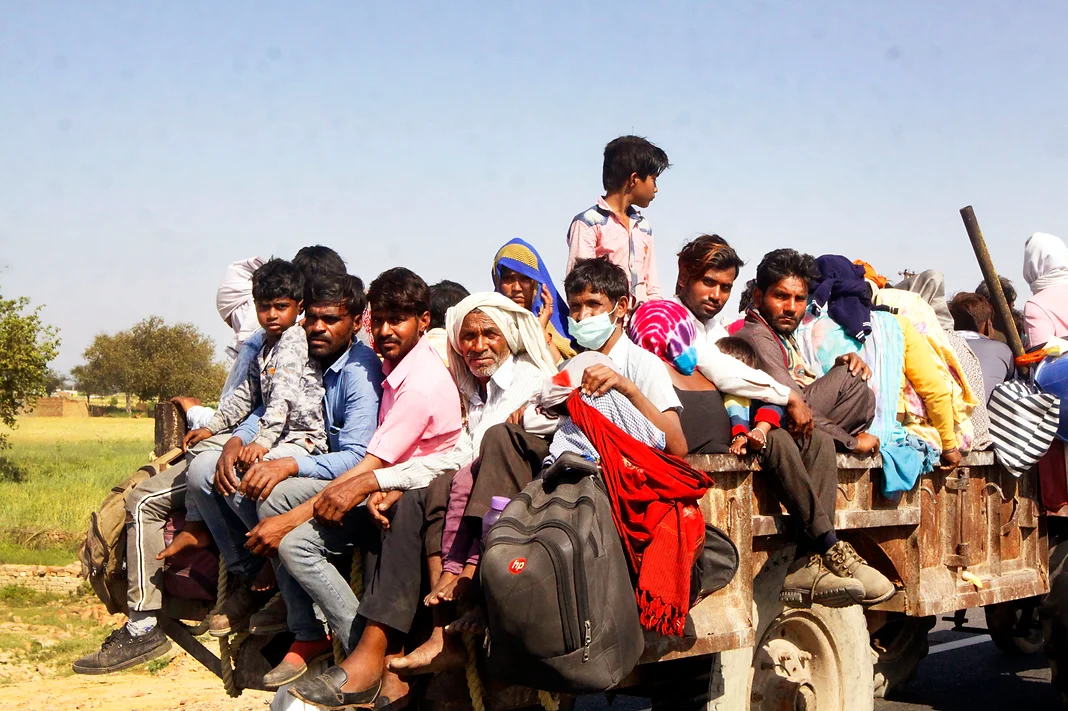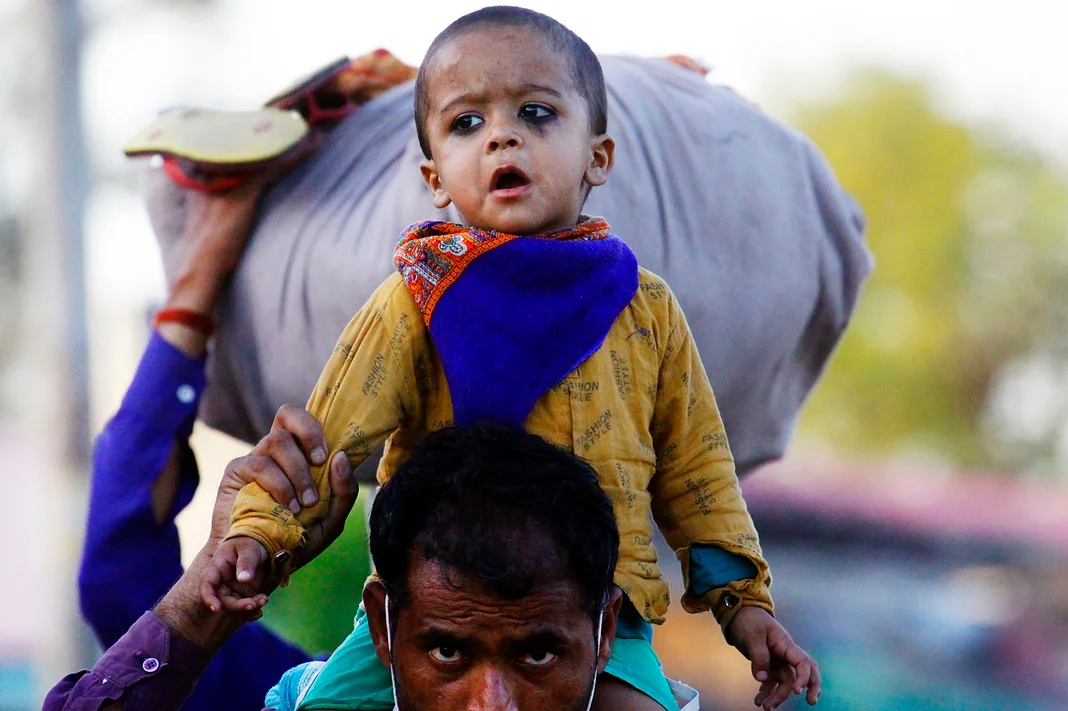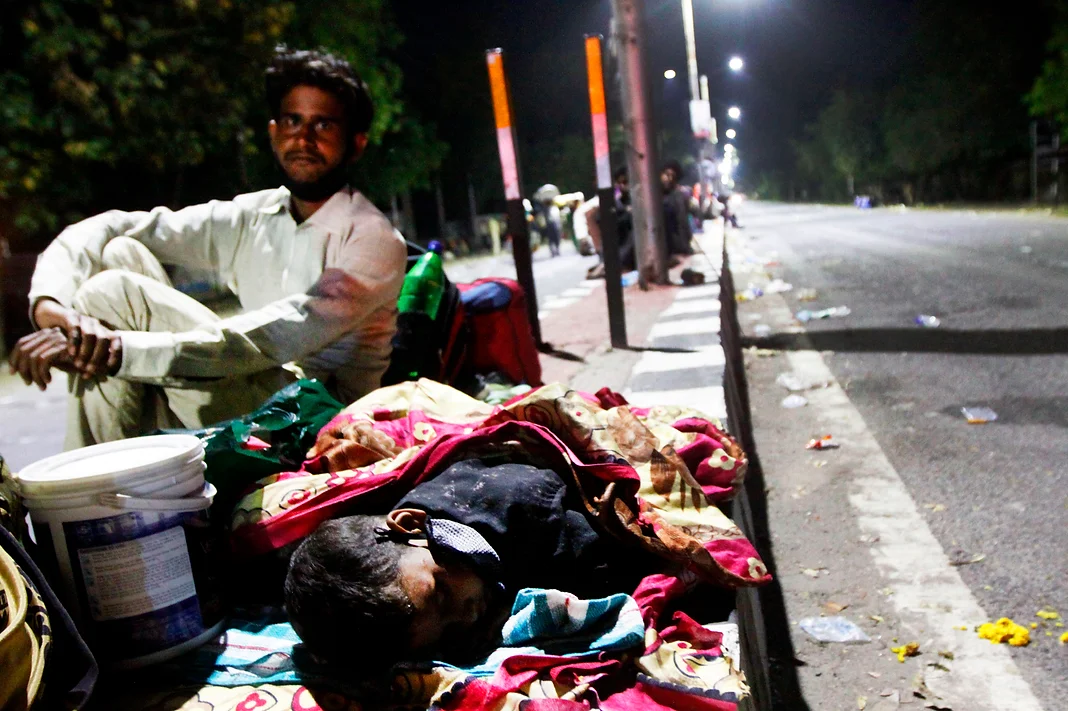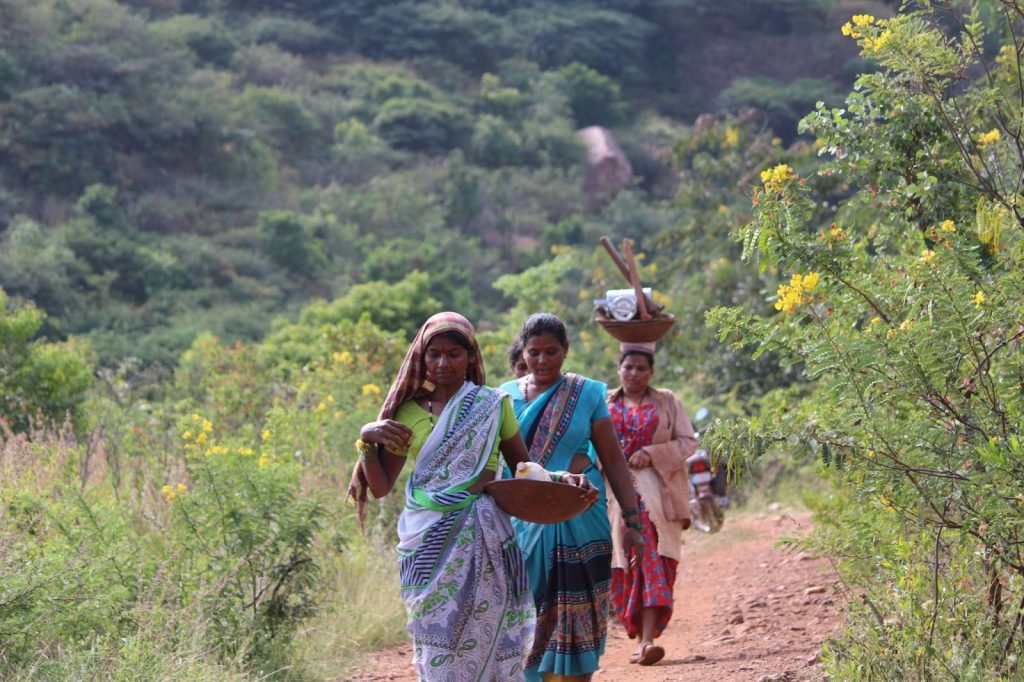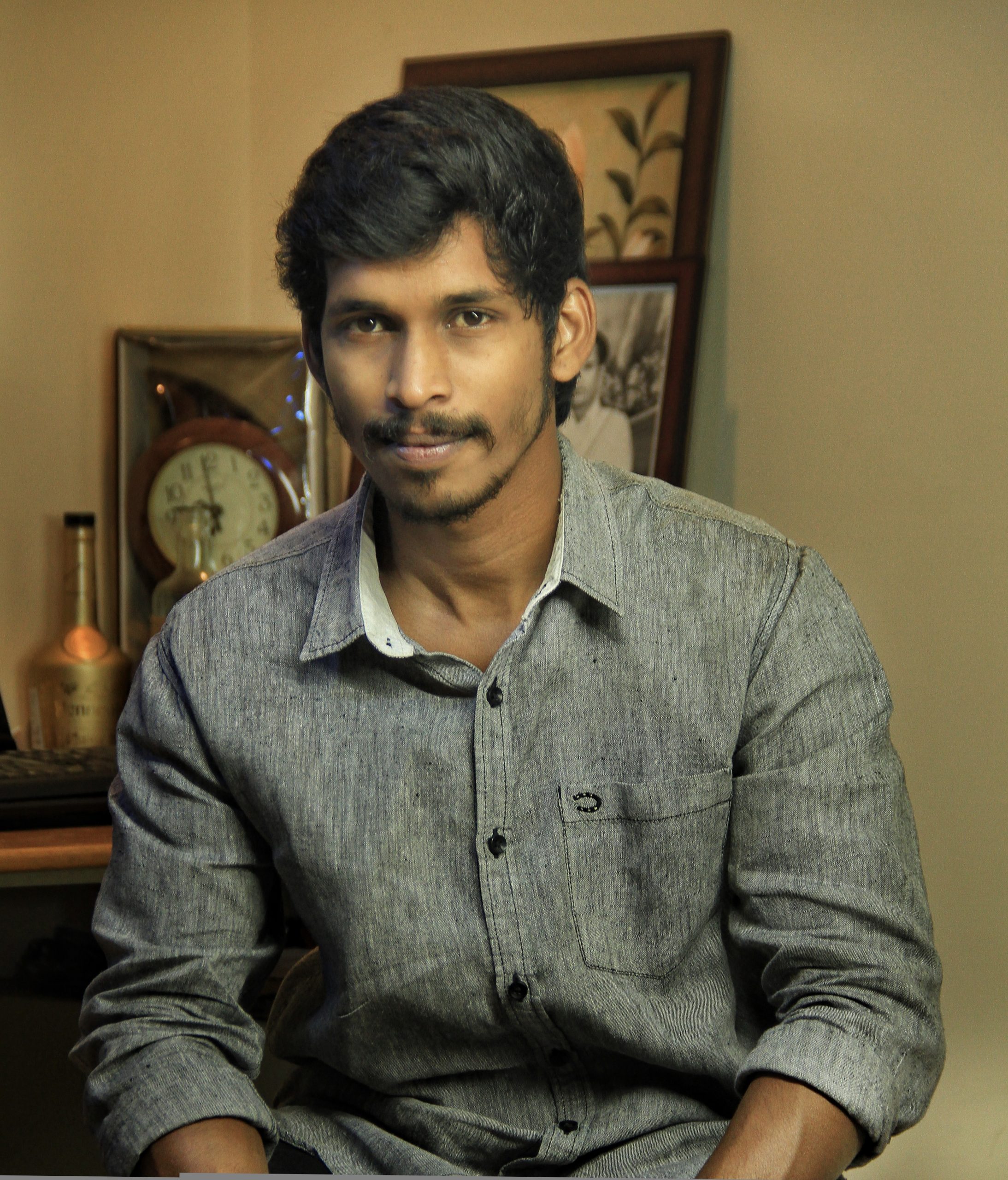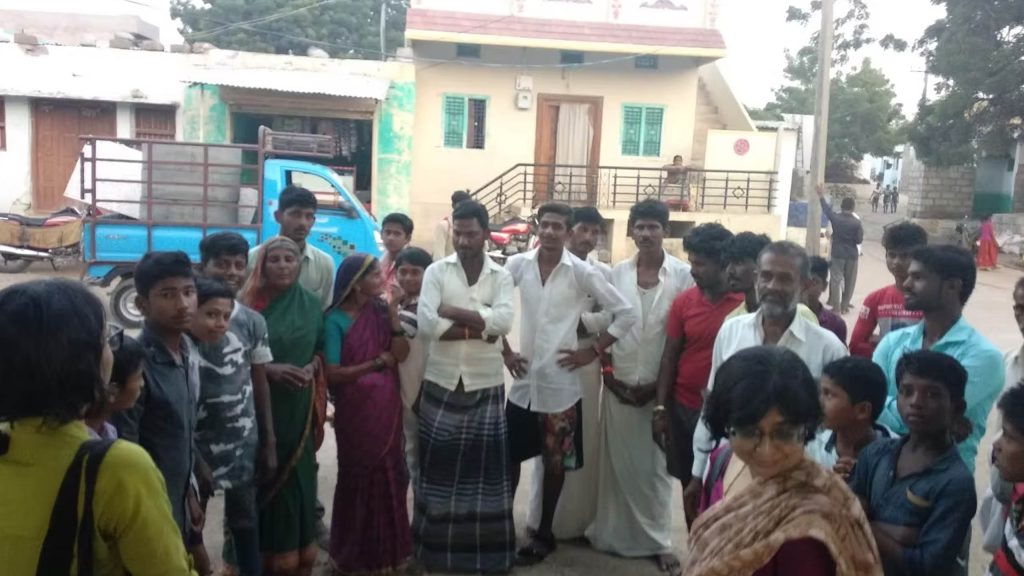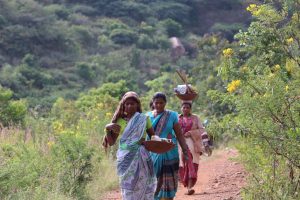The five-year period we’ve lived through since the last elections in 2019 witnessed COVID – the worst ever disaster we have collectively experienced as a society. Migrants were the worst affected and brutalized by COVID and its inept management by the state. Migrant workers lost their precarious jobs and were also expelled from their insecure urban shelters. They made arduous journeys back to their villages where more trouble awaited. Massive unemployment and indebtedness confronted workers and their families, as they struggled to cope with the lockdown and the disease.
The plight of migrant workers shook the conscience of many concerned citizens and propelled governments everywhere. The public rose to offer food, money and relief material. The media shed unsparing light on how the migrant workers fared through the crisis. And the governments announced packages of welfare measures to help workers go through the pandemic and regain some of their lost livelihoods.
However, it was too little too late.
Here in south Rajasthan where we live and work, thousands of migrants returned from Gujarat, Maharashtra among other states to penury. Many tried, with all their capital and confidence, to renew their economic lives at home, but only a few succeeded. Most returned to the construction sites, factories and markets that employed them.
Not surprisingly, the concern for the migrant worker also proved to be temporary. Business got back to business as usual while the workers resumed their arduous lives, now with an e-shram card – a digital identity card issued by the government that connects informal workers to various social security programmes – in their pocket. But workers’ rights and welfare returned to the realm of discretionary policy or populistic schemes but failed to become a political agenda calling for sustainable, structural change.
As the country goes to poll and promises by political parties arrive a dozen a day, there are at least four propositions for workers that need to find support and solidarity across all political beliefs.
First is to put the decent employment agenda back on track. We are currently witnessing spectacular rates of unemployment. High rates of unemployment indicate jobless growth or low quality jobs for which there are no takers. No wonder that rural to urban migration is showing signs of slowing down – it is not because opportunities have improved in rural areas and people no longer need to migrate. The slowdown is because stable and rewarding jobs in cities are missing for the youth, including those who are educated, trained and aspiring to join the workforce with their dignity intact.
The second demand calls for strong political commitment to decent wage. Wages must rise well above bare minimum, survival wage level to acceptable levels of living. For starters, more than half of all informal workers do not earn a minimum wage for their work. For those who do earn a wage, real earnings remain stagnant for years. With food inflation staggeringly high and earnings so meagre, workers and their dependent families not only remain undernourished but deeply immersed in debt. A large part of their earnings is consumed to merely survive in cities, leaving little for remittances.
The entry wage even for those with skill training is too low to survive in cities. Work conditions are arduous, living spaces are crowded and squalid, and the nature of employment is contractual and temporary. Most youth, therefore, return home. This all-pervasive informality of work and work conditions is also deterring rural to urban shift, known to be fundamental to economic transformation.
The third demand which stems from the above is that of universal access to low–cost, affordable and dignified housing, free healthcare and access to the Public Distribution System (PDS) – the government scheme to provide affordable foodgrains to the poor – for migrant workers. All of these have remained in discussion for years, a few even leading to some policy announcements. However, on-ground implementation remains dismal. The Affordable Rental Housing Complex scheme does not yet serve the desired segment of the working migrants and urban poor. The portability of PDS across states which would make it possible for migrants to get subsidized ration away from their home, is not yet operational. Public provisioning of housing, health care and food will ease the high pressure on the meagre incomes of migrant workers and make their experience less extractive.
The fourth demand for migrant workers, and indeed for all workers, needs to focus on making our construction sites, factories, facilities, units and markets completely safe and free of injury, trauma and accidents. Work for Indian workers is an act of utter peril. Our work sites are amongst the most dangerous anywhere in the world. By its own admission in 2021 the government reported that nearly 6500 workers had died while at work in the past five years. Accidents in factories had galloped by 20% within a year’s time! Most of these deaths were reported from the migrant-dense, highly industrialised and developed states, including Gujarat, Maharashtra and Tamil Nadu.
We register dozens of cases every year from workers suffering debilitating injuries through falls, machine failures, burns, electrocutions, toxic inhalation and chemical exposure. Most cases do not get reported or documented and the workers are forced to accept small compensations from employers while never quite accessing police or courts.
Employers are able to sign out of safety imperatives at workplaces because regulations remain weak and unenforced. Moreover, sites of work have shrunk to small, micro units where labour becomes invisible and vulnerable to all forms of risk.
This list of demands for migrant workers can get longer and more complex. For bridging the exclusion of migrants from their fundamental rights as workers, we must root for universal social security and entitlement. Nearly 54% of all workers do not enjoy any form of social security. Further a massive legal aid and justice programme is needed to ensure that wages of workers remain protected. They get cheated out of their rightful earnings because of being engaged without written contracts or formal arrangements. Almost 63% of India’s entire workforce does not possess a work contract. More recently new forms of work and work arrangements have mushroomed, such as in gig and platform work that already create precarious employment for thousands. These numbers will quickly grow to millions.
The attention COVID brought to the migrants’ experience has largely vaporised. The much discussed comprehensive policy for internal migration is yet to be implemented despite several sound inputs. Instead we have a country wide registration of workers under the e-shram programme which has enrolled nearly 30 crore workers. The utility of this massive exercise is yet to be established. Scores of welfare schemes dominate the labour narrative – these smother the landscape of rights and claims of migrants.
The sound and fury of the national elections will build up to a crescendo as this piece gets written and published. Never has politics been so divisive. On offer from our government is the promise of a strong Hindu rashtra which will unify all with authority and nationalistic pride. On the other is the promise of a governance order where democratic principles and institutions will be restored while diversity is celebrated and nourished.
However, these somewhat abstract notions are lost on the millions who will go to vote. People’s lives are less affected by jingoism than by the common struggles of their life and livelihoods. The electoral choices they make are triggered by the confidence in their elected leaders to deliver on real life problems – food, employment, basic infrastructure, law, order and safety.
As the drums roll for voting, for migrant workers and the ones who are on the threshold of migration, there will be primarily two cards from which to choose.
The one with a right-leaning lotus flower offers that they will reach out to e-shram registered workers and will help them avail benefits of various government schemes. Further, the government is offering a review of national floor wages.
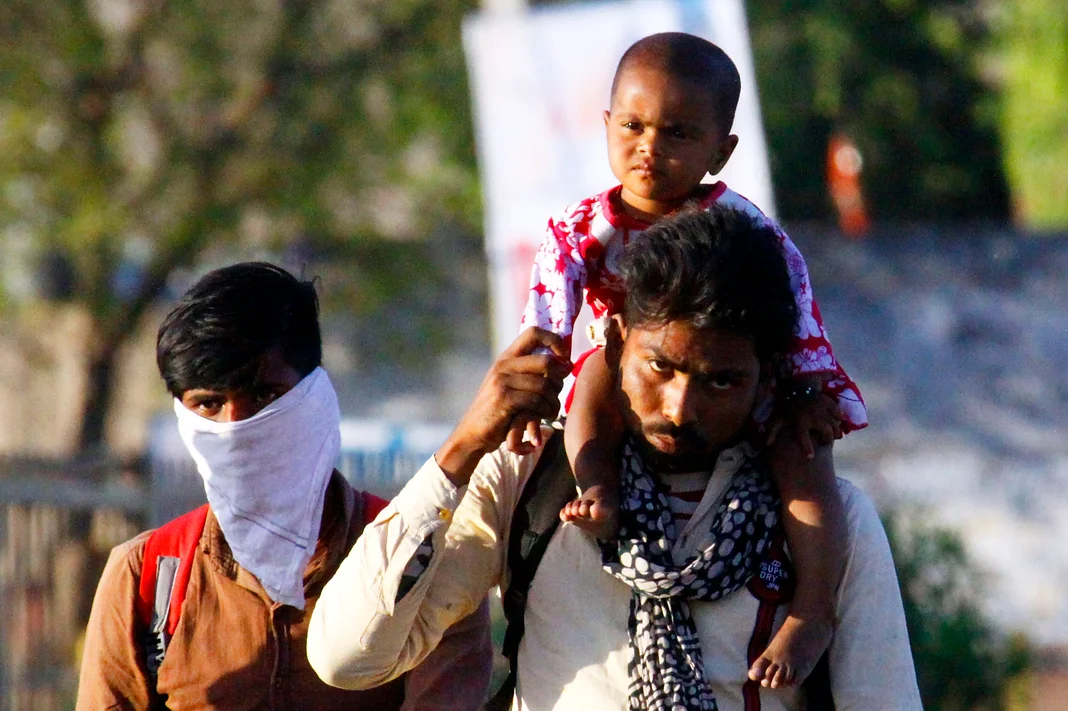
This has to be closely read with the fact that the national minimum wage floor introduced in 1991 and progressively increased up to a meagre ₹176 per day in 2017, is still not legally binding for any state. The other card with a combination of many symbols slightly leaning to the left offers measures for ensuring living wages as per Article 43 of the Constitution. It proposes an urban employment guarantee scheme along with strengthening the existing rural employment guarantee programme with increased wage and workdays. Further, by proposing the right to work as a constitutional right, by amending labour codes and by proposing laws to regulate the employment of migrant workers and their basic legal rights, they claim to ensure social security for all unorganised workers.
Other than these pronouncements the party manifestos are pitifully thin on workers’ issues. No promise of a thriving economy can be delivered if it is built on utter informality of its workers – poor wages, hazardous work conditions, missing social security and wide gap in access to justice. This is how economies and societies fail, not grow and prosper.
The author is co-founder and executive director of migrants rights nonprofit Aajevika Bureau


